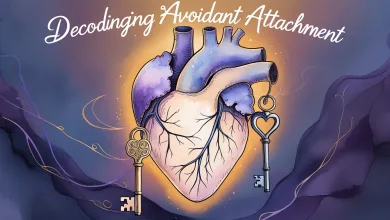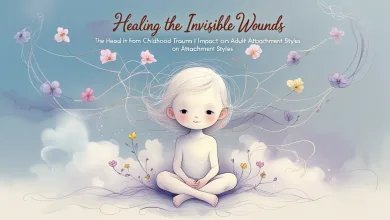How to Develop Secure Attachment: Unlocking the Secrets of Emotional Resilience

Ever feel like your relationships are stuck in a frustrating loop? Developing secure attachment might just be the game-changer you’ve been searching for. Buckle up for a journey of emotional discovery that’ll revolutionize how you connect with others and yourself!
Introduction: The Attachment Adventure Begins
Let’s face it – relationships can be trickier than trying to assemble IKEA furniture without instructions! Developing secure attachment isn’t just psychobabble; it’s the golden ticket to healthier, more fulfilling connections. Whoa, hold up – what exactly is secure attachment, and why should you care?
Secure attachment is like having an emotional GPS that helps you navigate relationships with confidence, trust, and genuine connection. It’s the difference between constantly walking on eggshells and feeling truly seen and understood.

The Science Behind Secure Attachment
Attachment theory isn’t just another pop psychology trend. Pioneering researchers like John Bowlby and Mary Ainsworth1 discovered that our early relationships fundamentally shape how we connect with others throughout our lives. Mind-blowing, right?
Understanding Your Attachment Style: The Self-Discovery Roadmap
Breaking Down Attachment Styles
Attachment styles are like relationship fingerprints – totally unique to you. Here’s a quick rundown:
- Secure Attachment: The relationship unicorn – balanced, healthy, and drama-free.
- Anxious Attachment: The “please don’t leave me” squad.
- Avoidant Attachment: The “I’m fine on my own” champions.
- Disorganized Attachment: The most complex style, often born from challenging early experiences.
The Roots of Your Relationship Patterns
Spoiler alert: Your attachment style isn’t set in stone! It’s more like a well-worn path that can be gently redirected with awareness and intentional work.
Practical Strategies to Develop Secure Attachment
1. Self-Awareness: Your First Superpower
Developing secure attachment starts with some serious self-reflection. It’s like being a detective in your own emotional landscape. Ask yourself:
- How do I typically respond in relationships?
- What triggers my deepest fears?
- Where do my relationship patterns come from?

2. Healing Emotional Wounds
Think of emotional healing like tending to a garden. Some wounds need gentle care, others might require some serious pruning. Therapy can be an incredible tool in this journey – no shame in getting professional support!
3. Communication: The Relationship Lifeline
Secure attachment thrives on honest, vulnerable communication. It’s about:
- Expressing your needs clearly
- Active listening
- Setting healthy boundaries
- Practicing emotional honesty
The Neurological Magic of Secure Attachment
Here’s a mind-blowing fact: Secure attachment actually changes your brain! Research shows that healthy relationships can rewire neural pathways2, promoting emotional regulation and resilience.
Overcoming Challenges: Your Attachment Transformation Toolkit
When Old Patterns Creep In
Let’s be real – changing attachment patterns isn’t a walk in the park. You’ll face challenges, trigger moments, and those pesky old habits. The key? Patience, self-compassion, and consistent practice.
Frequently Asked Questions About Secure Attachment
Q: Can I develop secure attachment if I didn’t have it growing up? Absolutely! Your past doesn’t define your future relationships.
Q: How long does it take to develop secure attachment? It varies, but consistent effort can show significant improvements in 6-18 months.
Q: Do I need therapy to develop secure attachment? While therapy can be incredibly helpful, self-work and personal development can also create meaningful changes.
Wrapping It Up: Your Relationship Revolution
Developing secure attachment is like learning a new language – the language of emotional connection. It’s a journey of self-discovery, healing, and transformation.
Remember, you’re not broken – you’re a work in progress, constantly evolving and growing.






